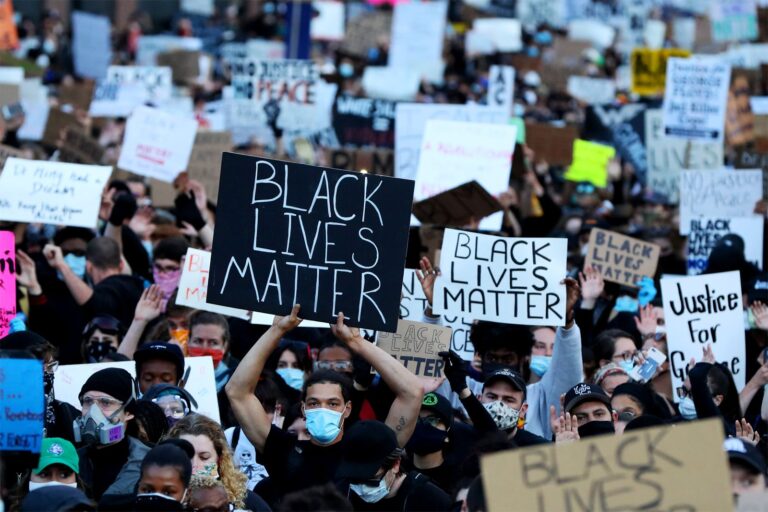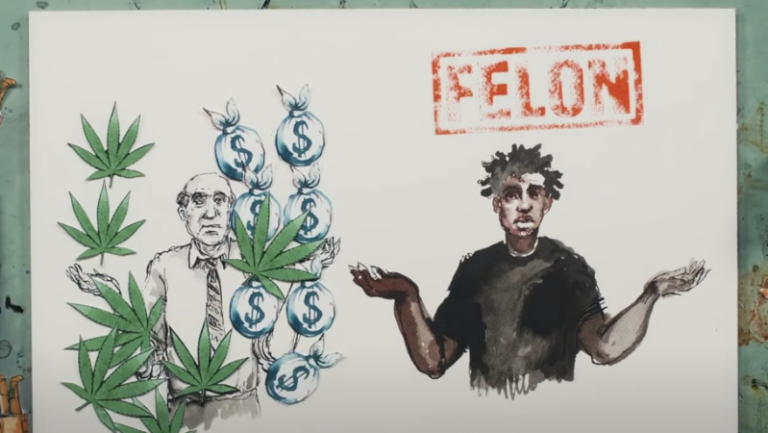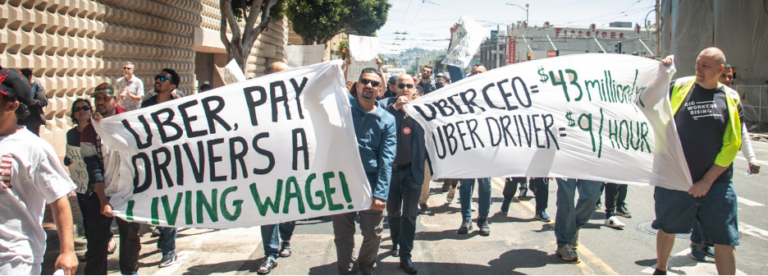All content categorized with: Work
Filter
Post List
Racism Pays: How Racial Exploitation Gets Innovation Off the Ground
Recent work on the history of capitalism documents the key role that racial exploitation played in the launch of the global cotton economy and the construction of the transcontinental railroad. But racial exploitation is not a thing of the past. Drawing on three case studies, this Paper argues that some of our most celebrated innovations in the digital economy have gotten off the ground by racially exploiting workers of color, paying them less than the marginal revenue product of their labor for their essential contributions. Innovators like Apple and Uber have been able to racially exploit workers of color because they have monopsony power to do so. Workers of color have far fewer outside options than white workers, owing to intentional and structural discrimination against workers on the basis of their race. In the emerging digital economy, racial exploitation has paid off by giving innovators a workforce that is cheap, easy to scale, flexible, and productive—the kind of workforce that is especially useful in digital markets, where a first-mover advantage often translates to winner-take-all. This Paper argues that these workers should be paid the marginal revenue product of their labor, and it proposes a number of potential ways to do so: by increasing worker compensation or worker power. More generally, I argue that we should value the essential contributions of workers of color and immigrant workers who make innovation possible.
Evading Culpability: Racism in the Porn Industry
In the summer of 2020, Black Lives Matter protests erupted all over the world in response to murders of Black individuals at the hands of law enforcement. The grief and anger kickstarted a conversation. Society was forced to acknowledge that racism is not an issue of the past but is…
Racial Disparities in the Legalized Marijuana Industry
Image of a white man piled with money bags and marijuana leaves next to a Black man with empty hands labeled “felon”[1] These days, it’s hard to overlook the explosion of cannabis retail stores on every corner, or the numerous cannabis billboards scattered along highways near the boarders…BLOG 3: Surveillance, Dark Sousveillance, & the Law
By: Rihan Issa, Executive Articles Editor, Vol. 27 Part 1 of the series discussed the argument in Simone Browne’s book, Dark Matters. She highlighted the importance of racializing surveillance as an important conceptual understanding of the way surveillance has been used to order society along racial lines. She argues that…
The Discriminatory Effect of U.S. Intellectual Property Law on Black Artists
By: Shelly Feldman, Associate Editor, Vol. 27 In many areas of the law, facially neutral legal doctrines do not affect groups equally in practice.[i] This is well known and documented in America’s criminal justice system, which has historically oppressed racial minorities in disproportionate numbers.[ii] Though less…
Under the Threshold: Gaps in State Employment Discrimination Laws
(Image of farmworkers with farm equipment in a field) By: Elisa Teeter, Associate Editor, Vol. 27 The purpose of Title VII of the Civil Rights Act of 1964 is to “improve the economic and social conditions of minorities and women by providing equality of opportunity in the work place.”…Racist at its Core: The Continual Push for Work Requirements in Public Assistance Programs
By: Liza DavisExecutive Editor, Vol. 27 In March of 2014, now-retired congressional leader Paul Ryan appeared on a radio talk show to discuss the causes of “the economic conditions…plagu[ing] much of the country.”[1] At one point, Ryan said, “We’ve got this tailspin of culture, in our inner cities in…
Reaction against the Denial of Comfort Women’s Voices and Truth
By Karly JungAssociate Editor, Vol. 26 Across the globe, academics and activists mobilized to thoroughly examine a Harvard professor’s characterization of “comfort women” as prostitutes.[1] So-called “comfort women” consisted of women and girls from various countries (though primarily from Korea, a colony of Japan at the time) who…Aligned: Sex Workers’ Lessons for the Gig Economy
Society’s perception of a type of work and the people who engage in money-generating activities has an impact on whether and how the law protects (or does not protect) the people who perform those activities. Work can be legitimized or delegitimized. Workers are protected or left out to dry depending upon their particular “hustle.” This Article argues that gig workers and sex workers face similar challenges within the legal system and that these groups can and should collaborate to their collective advantage when seeking reforms. Gig workers have been gaining legitimacy while sex workers still primarily operate in the shadow economy. This Article digs into the sometimes-conflicting desires of individuals working as sex workers and gig workers to inform how gig workers can achieve the power and economic independence necessary to prevent workplace exploitation.
Workers’ Rights in a Post-Proposition 22 World
By: Andrew MorinAssociate Editor, Vol. 26 This past election, California voters decided on an issue that may have far-ranging consequences for the future of employment and worker’s rights across the country. Proposition 22, approved by 56% of California voters, excludes gig companies such as Uber, Lyft, DoorDash, and others from…





